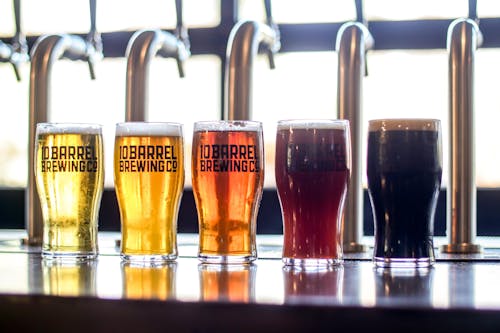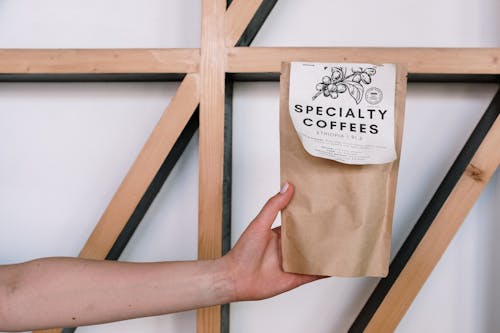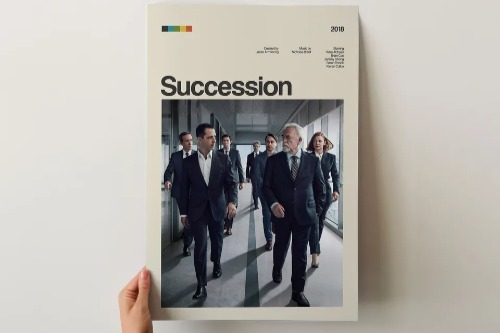1. Craft Beer Terminology

Americans often nod along in conversations about craft beer, pretending to know the difference between a double IPA and a sour ale. The terminology—hoppy, malty, barrel-aged—can feel like a secret code, and nobody wants to admit they can’t taste the subtle nuances. At social gatherings or brewery tours, faking expertise is easier than asking for a plain lager. Many will even repeat what someone else says about the flavor, just to blend in.
The irony is that a lot of people can’t actually tell a stout from a porter without reading the label. They’ve memorized the words but haven’t memorized the flavor. It becomes more about social performance than genuine taste. By the end of the night, the beer enthusiast persona is more practiced than the actual drinking.
2. Modern Art Interpretations

When it comes to abstract paintings, Americans often throw around terms like “juxtaposition” or “deconstruction” to sound cultured. In reality, most people are guessing and hoping no one calls them out. At gallery openings, nodding thoughtfully is enough to appear sophisticated. It’s easier to fake deep thought than admit it looks like a toddler’s finger painting.
This act isn’t just about avoiding embarrassment; it’s a social cue. Talking about art with confidence, even if baseless, can make someone seem well-read or enlightened. The trend has turned art appreciation into a performance for many. The conversation matters more than the canvas.
3. Craft Coffee Knowledge

Americans pretend to understand the difference between a flat white, cortado, and macchiato just to sound “in the know.” Many people can’t even correctly identify their espresso shot if it hits them straight. Coffee culture has become a status symbol, not just a morning ritual. Ordering like a barista signals sophistication more than caffeine preference.
At coffee shops, people may comment on the roast or the origin country of beans without ever tasting a single hint of it. They rely on repetition from online guides or friends. The small talk often overshadows the actual drink. In the end, it’s the performance of expertise that matters.
4. Cryptocurrency Jargon

When Bitcoin or Ethereum comes up, nodding and using terms like “hodl” or “staking” is a common tactic. Most people don’t understand the technology or the market volatility behind it. Admitting ignorance about crypto can feel like admitting you’re out of touch with modern finance. So many Americans fake confidence to avoid that awkward moment.
Even casual conversations about crypto can turn into an info-show, where people repeat phrases they’ve heard online. It’s easier than learning how wallets and blockchain actually work. This makes crypto talk more about social signaling than actual investment savvy. People hope repeating buzzwords equals expertise.
5. Indie Music References

Throwing out band names no one has heard of is a common way to seem musically refined. Many Americans have never listened to the albums they brag about. At parties or on social media, dropping obscure music references makes someone appear “ahead of the curve.” The goal is to fit in with people who value musical taste over volume.
Spotify playlists and curated recommendations allow people to fake their knowledge convincingly. Even if the music never reaches their ears, they can quote reviews or lyrics. Music, in this context, becomes more about perception than experience. The more niche, the cooler it seems.
6. Fashion Trends

Keeping up with the latest fashion lines can be exhausting, so many Americans nod knowingly while actually clueless. Terms like “athleisure,” “oversized blazer,” or “streetwear drop” get repeated at a dizzying pace. The fear of looking outdated drives many to fake understanding. Shopping becomes a performance rather than a personal preference.
Even if they don’t own the pieces, people will comment on them as if they do. Instagram and TikTok trends feed this pretense, offering talking points more than wardrobe advice. Fashion conversations are often more about signaling taste than wearing the items. Nobody wants to admit they’re guessing.
7. Wine Varietals

Red vs. white is simple, but Americans often act like they can detect a subtle hint of blackberry in a 2019 Bordeaux. Sommeliers might appreciate the attempt, but most people are bluffing. Wine tasting has become a cultural performance where pretension equals sophistication. Asking simple questions can feel socially dangerous.
Menus and tasting notes become cheat sheets for pretending. People repeat descriptions they’ve read online, hoping they sound credible. The act of drinking wine often overshadows actually enjoying it. It’s more about appearing knowledgeable than the actual sip.
8. Foreign Cuisine Nuances

Talking about the difference between authentic pho, ramen, and udon can make someone seem worldly. Many Americans haven’t tasted all of these dishes but will confidently comment on broth or noodle texture. Food culture has become a social currency. Admitting ignorance can feel like a failure in cultural literacy.
Restaurants often encourage people to play along, offering elaborate menus with unfamiliar terms. Repeating buzzwords from a friend or guidebook is common. People hope this gives them credibility without actual experience. It’s more about presentation than palate.
9. Fitness Lingo

CrossFit, HIIT, and functional training come with their own vocabulary that many Americans barely understand. People often talk about “WODs” or “muscle activation” to seem committed to fitness. The conversation is about dedication and discipline rather than exercise knowledge. Saying the right words signals belonging to a community.
Gyms and social media amplify this effect. Even those who rarely lift a weight can sound like experts. It’s easier than getting injured while learning new techniques. Fitness talk becomes performative, not practical.
10. Movie References

Quoting cult classics or dropping film trivia is a staple in social circles. Many Americans have never actually seen the movies they reference. It’s all about signaling taste and pop culture literacy. Pretending prevents the embarrassment of saying, “I’ve never seen that.”
Memes, podcasts, and online clips make it possible to fake familiarity convincingly. Even a vague memory of a plotline is enough to participate. This creates a shared social space where appearances matter more than substance. People nod along to avoid looking behind the curve.
11. Tech Gadgets

Understanding every feature of the latest phone, smartwatch, or VR headset is overwhelming. Americans will often nod along in tech discussions to avoid looking behind the curve. Buzzwords like “AI integration” or “haptic feedback” get thrown around confidently. The goal is to appear tech-savvy without learning the details.
Product reviews and commercials make it easy to bluff knowledge. Even if someone hasn’t used the gadget, quoting a review makes them seem informed. Social circles reward the act of appearing up-to-date. Expertise is assumed by repetition rather than experience.
12. Highbrow TV Shows

Shows like Succession, Euphoria, or The Crown often get name-dropped to signal sophistication. Many Americans only catch headlines or memes about the episodes. Pretending to understand the plot or character arcs helps people seem culturally aware. Falling behind can make someone feel uncool in peer groups.
Discussion threads and recaps give enough material to fake comprehension. People can reference dramatic twists without ever seeing the show. The conversation itself becomes a way to bond, even if the shared knowledge is superficial. Social participation outweighs actual viewing.
This post 12 Things Americans Pretend to Understand Just to Avoid Looking Uncool was first published on American Charm.


